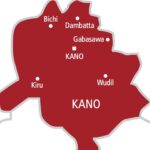As the country yet battles to contain the spread of the Delta variant of COVID-19, cholera is also spreading and taking its toll on Nigerians, which if not controlled immediately, can advance into an epidemic.
A recent report of the Nigeria Centre for Disease Control (NCDC) showed that the disease as of June 27, 2021 had affected Benue, Delta, Zamfara, Gombe, Bayelsa, Kogi, Sokoto, Bauchi, Kano, Kaduna, Plateau, Kebbi, Cross River, Niger, Federal Capital Territory (FCT) and Nasarawa states.
- PODCAST; Why Breastfeeding Is A Social Responsibility
- Powerful people mounting pressure for release of kidnappers’ collecting ransom through banks
The report showed an increase in the number of new cases in the last two weeks of June; indicating Zamfara had 191 cases, Bauchi 2163, Kano 891, Kaduna 129 and Plateau 82 cases. Since then, the number of cases and death toll have both risen and spread to more states. For instance, the FCT Minister of State, Dr Ramatu Tijjani Aliyu, said fatalities from cholera in the FCT have risen to 60. So far, cholera has claimed 325 lives in six months with 14,343 suspected cases reported in 16 states.
Cholera is caused by eating food or drinking water contaminated with a bacterium called Vibrio cholerae. It is potentially life-threatening, and primarily a water-borne disease. The bacterium is transmitted mainly through the faeco-oral, that is by the ingestion of contaminated food or water. Open defecation, which is still common in rural communities, could be a remote cause when human faeces are washed by rain into streams from which people drink.
Symptoms of cholera include nausea and vomiting, dehydration which could lead to shock, kidney injury, the passage of profuse pale and milky or watery stool, and body weakness. Cholera could also come with intense thirst and decrease in urine quantity, with or without abdominal pain, and with or without fever. Public health officials say many affected persons may not manifest symptoms or may develop a milder form of the disease but will still remain carriers spreading the disease. The World Health Organisation reports that there are 1.3 million to 4 million cases of cholera each year.
According to the Director General of NCDC, Dr Chikwe Ihekweazu, response to the cholera outbreak is being coordinated by the national multi-sectoral Emergency Operations Centre (EOC) hosted at NCDC, in collaboration with the Federal Ministry of Water Resources (FMWR), the National Primary Healthcare Development Agency (NPHCDA) and partners. He said the state-level EOC has also been activated in some states, adding that the centre is also conducting training on cholera surveillance and hot spots mapping.
It is unfortunate that cholera still takes a huge toll on the country each time there is an outbreak. One would have thought that after so many years of recurrent outbreaks, action would have been taken to stem the tide. Infections that occur yearly should not take the country unawares. Now that the disease is here, action must be taken to tackle it immediately.
Government at all levels must rise to the occasion through the general hospitals and primary health care centres to quickly address this problem. Drugs and adequate personnel should be available to take care of patients.
We urge public health agencies and partners to embark on massive enlightenment campaigns to educate Nigerians on environmental and personal hygiene measures. This includes regular washing of hands with soap and water. Water from unclean sources should be treated before use, through boiling or using chlorinated solutions. Infected people should be taken to the nearest medical facility without delay to check the spread.
People should embrace and take the anti-cholera vaccine just as we urge that it should be made available in large quantities.
While government is encouraged to remain committed to ending open defecation, there’s also a critical need for improved access for Nigerians to clean and safe drinking water in urban and rural communities. It is cheaper to prevent cholera than control its spread or treat infected persons.

 Join Daily Trust WhatsApp Community For Quick Access To News and Happenings Around You.
Join Daily Trust WhatsApp Community For Quick Access To News and Happenings Around You.


